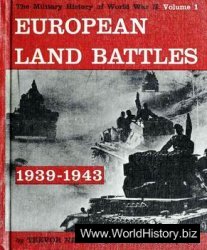Such was the atmosphere surrounding the 1856 presidential election. The Republican party now dominated much of the North. It nominated John C. Fremont, “the Pathfinder,” one of the heroes of the conquest of California during the war with Mexico. Fremont fit the Whig tradition of presidential candidates: a popular military man with almost no political experience. Unlike Taylor and Scott, however, he was articulate on the issue of slavery in the territories. Although citizens of diverse interests had joined the party, Republicans expressed their objectives in one simple slogan: “Free soil, free speech, and Fremont.”
The Democrats cast aside the ineffectual Pierce, but they did not dare nominate Douglas because he had raised such a storm in the North. They settled on James Buchanan, chiefly because he had been out of the country serving as minister to Great Britain during the long debate over Kansas! The American party nominated former president Millard Fillmore, a choice the remnants of the Whigs endorsed. Walt Whitman had been an ardent Democrat. But the party’s stand on slavery in the territories disgusted him. In 1856 he wrote a poem, “The 18 th Presidency,” denouncing both Buchanan and Fillmore:
Two galvanized old men, close on the summons to depart this life . . . relics and proofs of the little political bargains. . .
Source: Walt Whitman "The 18th Presidency."
In the campaign, the Democrats concentrated on denouncing the Republicans as a sectional party that threatened to destroy the Union. On this issue they carried the day. Buchanan won only a minority of the popular vote, but he had strength in every section. He got 174 electoral votes to Fremont’s 114 and Fillmore’s 8. The significant contest took place in the populous states just north of slave territory—Pennsylvania, Ohio, Indiana, and Illinois. Of these, Buchanan carried all but Ohio, although by narrow margins.
No one could say that James Buchanan lacked political experience. Elected to the Pennsylvania legislature in 1815 when he was only twenty-four years old, he served for well over twenty years in Congress and had served as minister to Russia, as secretary of state, and as minister to Great Britain.
Personally, Buchanan was a bundle of contradictions. Dignified in bearing and by nature cautious, he could consume enormous amounts of liquor without showing the slightest sign of inebriation. A big, heavy man, he was nonetheless remarkably graceful and light on his tiny feet, of which he was inordinately proud. He wore a very high collar to conceal a scarred neck, and because of an eye defect he habitually carried his head to one side and slightly forward, which gave him, as his biographer says, “a perpetual attitude of courteous deference and attentive interest” that sometimes led individuals to believe they had won a greater share of his attention and support than was actually the case. In fact he was extremely stubborn and sometimes vindictive.




 World History
World History









